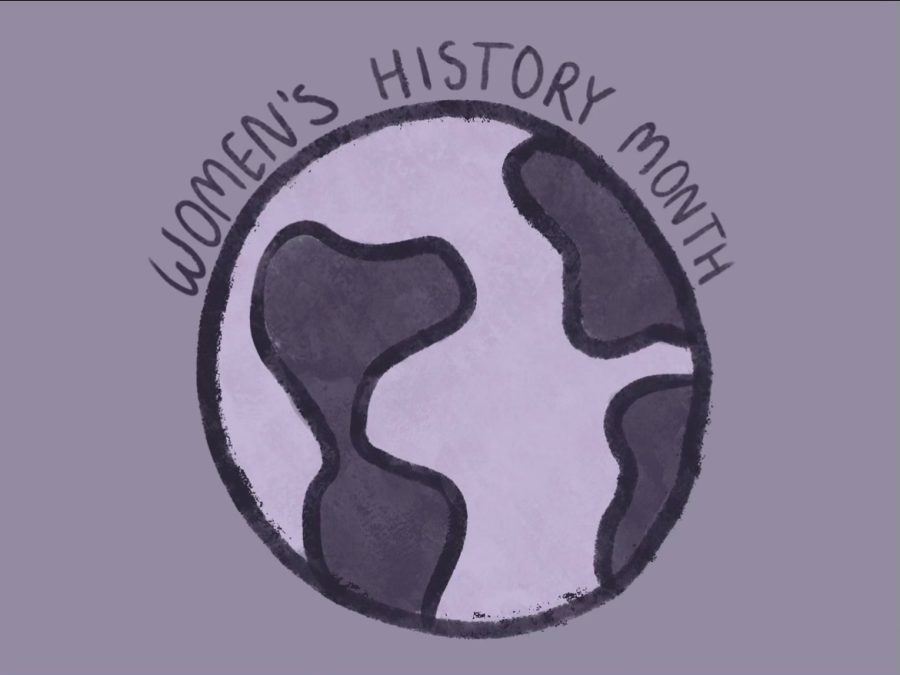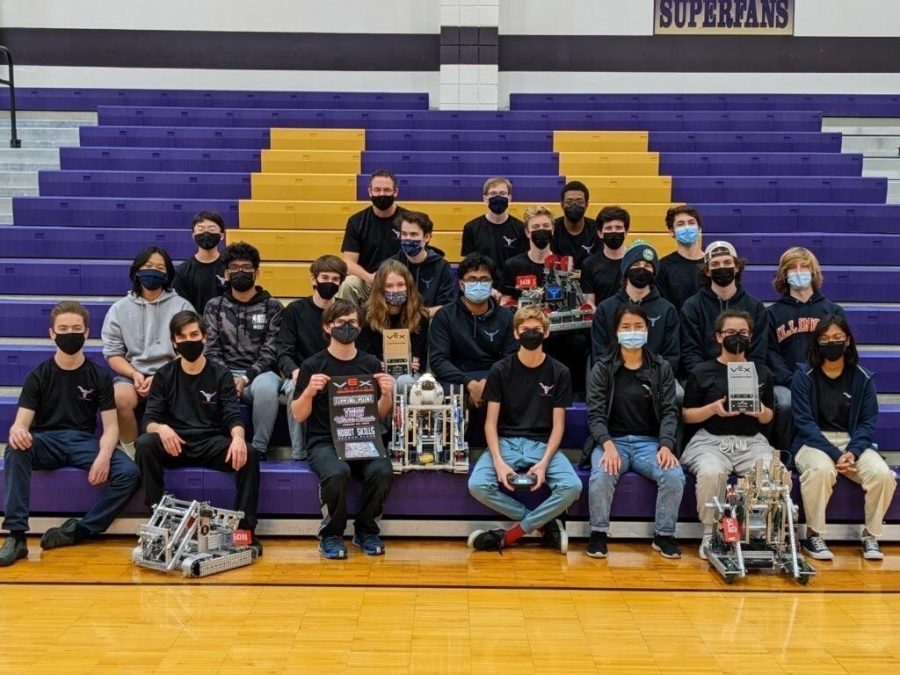Proclaimed initially “Women’s History Week” in 1981, Women’s History Month celebrates women’s achievements throughout history. Women faced, and still face, various forms of oppression in day-to-day life. Whether it be wage gaps, the pink tax or education, women face numerous obstacles that threaten their potential. Nevertheless, women persevered and advocated for their rights.
Many consider the 1848 Seneca Falls Woman’s Rights Convention the beginning of America’s Women’s Rights Movement. Elizabeth Cady Stanton, Lucretia Mott, Martha Wright, Mary Ann M’Clintock and Jane Hunt organized the convention to advocate for gender equality. Additionally, 100 attendees signed the “Declaration of Sentiments,” stating, “We hold these truths to be self-evident: that all men and women are created equal.”
As the Women’s Rights Movement gained momentum, feminists turned their attention to suffrage. After women held protests, hunger strikes and worked during World War I, the Nineteenth Amendment was ratified Aug. 18, 1920. However, contrary to popular belief, the Nineteenth Amendment did not give all women equal access to voting. Well-known activists such as Stanton fought against suffrage for Black men and tried to separate the Women’s Rights Movement from movements for suffrage of all races. Discrimination and intimidation tactics made it difficult for Black people to vote following the Nineteenth Amendment’s ratification. Native American and Asian women struggled to gain citizenship, hindering their voting rights until later in the 1900s. Additionally, each state had the right to decide whether or not to ratify the citizenship bills and suffrage amendments.
Mary Church Terrell, Frances Ellen Watkins Harper, Nannie Helen Burroughs, Ida B. Wells-Barnett, Mabel Ping-Hua Lee and Marie Louise Bottineau Baldwin were crucial activists in gaining suffrage for all women. When the suffrage movement became divided in its views, the American Woman Suffrage Association (AWSA) supported the Fifteenth Amendment, granting African American men the right to vote before women would gain voting rights. Harper helped form AWSA in support of the Fifteenth Amendment, and she later went on to advocate for equal education and job opportunities.
Although many are familiar with the famous pioneers of the Women’s Rights Movement, there are still various women leading their fields at a local level. Three out of four grade-level principals at West are women. Principal Beth Plunkett led the West community from 1995-2010, taking on a role that women were not typically offered at the time.
Even students have held fundraisers for charities, advocated for sports teams and spoken with a former state representative. From robotics to the theater to music, the women of Parkway West are pursuing their goals.





![Smiling in a sea of Longhorns, Fox 2 reporter Ty Hawkins joins junior Darren Young during the morning Oct. 3 pep rally. The last time West was featured in this segment was 2011. “[I hope people see this and think] if you come to [Parkway] West, you will have the time of your life because there are so many fun activities to do that make it feel like you belong here. I was surprised so many people attended, but it was a lot of fun,” Young said.](https://pwestpathfinder.com/wp-content/uploads/2025/10/Edited2-1200x798.jpg)
![West High seniors and families listen as a representative of The Scholarship Foundation of St. Louis, Teresa Steinkamp, leads a Free Application for Federal Student Aid (FAFSA) workshop. This session, held in the library, provided guidance on financial aid, scholarships and student loan options. “This event is very beneficial for any seniors who are applying to or considering applying to colleges after high school [because] the cost of college is on the rise for seniors and parents,” college and career counselor Chris Lorenz said.](https://pwestpathfinder.com/wp-content/uploads/2025/09/DSC_4478-1200x778.jpg)
![Senior Kamori Berry walks across the field during halftime at the Homecoming football game on Sept. 12. During the pep assembly earlier that day, she was pronounced Homecoming Queen. “I thought it was nice that the crowd [started] cheering right away. I know [my friends] were really excited for me, and my family was happy because typically non-white people don't win,” Berry said.](https://pwestpathfinder.com/wp-content/uploads/2025/09/DSC7046-Enhanced-NR-1200x798.jpg)



![Pitching the ball on Apr. 14, senior Henry Wild and his team play against Belleville East. Wild was named scholar athlete of the year by St. Louis Post-Dispatch after maintaining a high cumulative GPA and staying involved with athletics for all of high school. “It’s an amazing honor. I feel very blessed to have the opportunity to represent my school [and] what [it] stands for,” Wild said.](https://pwestpathfinder.com/wp-content/uploads/2025/05/unnamed-6-1200x714.jpg)
![The Glory of Missouri award recipients stand with their certificates after finding out which virtue they were chosen to represent. When discovering their virtues, some recipients were met with contented confirmation, while others, complete surprise. “I was not at all surprised to get Truth. I discussed that with some of the other people who were getting the awards as well, and that came up as something I might get. Being in journalism, [Fellowship of Christian Athletes and] Speech and Debate, there's a culture of really caring about truth as a principle that I've tried to contribute to as well. I was very glad; [Truth] was a great one to get,” senior Will Gonsior said.](https://pwestpathfinder.com/wp-content/uploads/2025/04/Group-Glory-of-Missouri.jpg)

